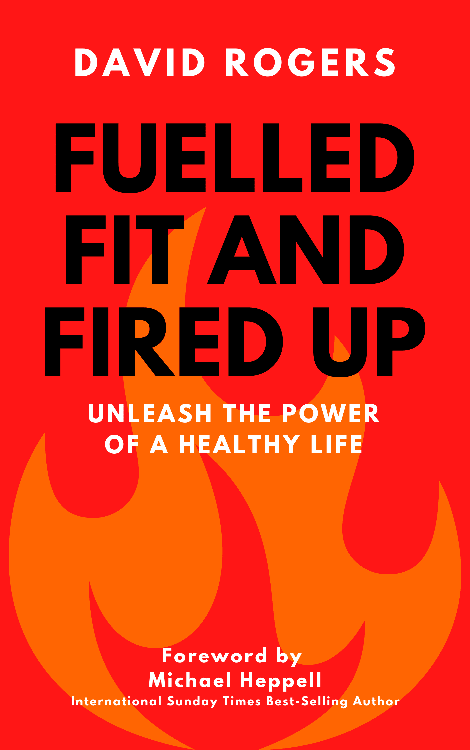
Developing Our Self-Control
Today, I want to explore the realm of willpower—a force that shapes our choices, defines our resilience, and empowers us to navigate the modern landscape of distraction.
So, let’s start with what science tells us and what we can learn.
Understanding the Science Behind Willpower
Willpower, the linchpin of self-control, finds its roots in the intricate landscape of our brain. Recent scientific studies have illuminated the cognitive processes that govern our ability to resist temptations, make better decisions, and persevere in the face of challenges. The prefrontal cortex, the conductor of executive functions, orchestrates our impulses and manages conflicting goals. For instance, when faced with a tempting indulgence, understanding the neurological battle between the prefrontal cortex and the impulsive limbic system can empower us to make choices aligned with our long-term goals.
Over the years, scientific research has provided compelling evidence that willpower is not just an inherent trait but a skill that can be developed and strengthened through deliberate practice. Here are a few notable examples:
The Marshmallow Test: Conducted by psychologist Walter Mischel in the 1960s, the Marshmallow Test involved offering children a choice between a small, immediate reward (like one marshmallow) or a larger reward if they waited for a short period (two marshmallows). Follow-up studies revealed that children who were able to delay gratification during the test later exhibited better academic performance, health outcomes, and overall life success. This suggests that the ability to resist immediate temptations is associated with positive life outcomes.
Baumeister's Ego Depletion Theory: Psychologist Roy Baumeister proposed the concept of ego depletion, suggesting that self-control is a finite resource that can be depleted with use. In a series of experiments, participants performed tasks that required self-control, such as resisting tempting snacks or suppressing emotional reactions.Those who exerted self-control in the initial task performed poorly in subsequent self-control tasks, indicating a temporary depletion of willpower. However, further research challenged this theory, suggesting that while willpower might have limits, it can also be strengthened with practice.
Stanford's "Believe in Yourself" Study: In a study led by psychologist Carol Dweck at Stanford University, students were taught about the malleability of intelligence—that the brain is like a muscle that can be developed over time. The control group received no such training.The students who received the growth mindset training showed a significant improvement in their grades compared to the control group. This suggests that changing one's beliefs about the nature of abilities and intelligence can positively impact academic performance by fostering a mindset that values effort and resilience.
Mindfulness Meditation and Willpower: Research, such as a study published in the journal Psychological Science, has explored the impact of mindfulness meditation on strengthening willpower. Participants engaged in mindfulness training, which involves cultivating awareness of the present moment without judgment. And those who practised mindfulness exhibited improvements in self-control, attention, and overall emotional well-being. This suggests that mindfulness practices can contribute to the development of willpower.
These examples highlight the dynamic nature of willpower and its responsiveness to training and mindset shifts. The field of psychology continues to explore how interventions, strategies, and intentional efforts can enhance our capacity for self-control and willpower.
Building Resilience: A Workout for the Mind
Much like a muscle responding to exercise, willpower can be cultivated and strengthened. Consider setting goals that are personal, positive, and in the present technique, a technique proven to enhance focus and perseverance. Mindfulness practices, such as meditation and deep breathing exercises, can also bolster your mental fortitude. By establishing a routine that aligns with your values, you create a foundation for self-discipline that permeates every aspect of your life.
Escaping the Tech Trap: Navigating Modern Distractions
The digital age has introduced unprecedented distractions, making it crucial to adopt effective strategies to regain control. Implementing techniques such as the Pomodoro Technique—breaking work into focused intervals separated by short breaks—can boost productivity and prevent burnout. Turning off non-essential notifications, creating dedicated workspaces, and practising digital detox weekends are practical steps to reclaiming your attention in a world full of beeps and notifications.
The Business Case for Willpower
In the fast-paced world of business, executives and entrepreneurs who harness the power of willpower often stand out. Steve Jobs' legendary focus on simplicity and innovation, even in the face of challenges, is a testament to the impact of unwavering determination. Elon Musk's ability to set audacious goals and persist in the face of setbacks showcases the transformative potential of a resolute will. By adopting disciplined habits and staying true to long-term visions, business leaders can navigate uncertainties with grace.
The Ripple Effect: Positive Impact on Life
Beyond the boardroom, willpower has a profound impact on our personal lives. Take, for instance, the story of J.K. Rowling, who, despite facing numerous rejections, persevered in her pursuit of becoming a published author. Her resilience and commitment to her craft resulted in the creation of the globally beloved Harry Potter series. Similarly, individuals who harness willpower to maintain healthy habits often experience a positive cascade effect, influencing other aspects of their lives, such as relationships and overall well-being.
By understanding the science of willpower, building resilience through intentional habits, and mastering the art of focus in a world teeming with distractions, we can unlock doors to success and fulfilment.
Why not share your thoughts, experiences, and strategies for cultivating willpower in the comments?
Together, let's inspire and empower one another to unleash the power within.
Have a brilliant week!
Dave Rogers, Chief Business Explorer, Fuelled Fit and Fired Up
At Fuelled Fit and Fired Up, I use my curiosity to help you build a better business.
Think of me as the person who unleashes your power.
Looking for a speaker who thinks a little differently? Let’s talk.
Why not contact me at info@fuelledfitandfiredup.com to find out more?
And don’t forget to subscribe to my YouTube channel @thebusinessexplorers, where I share ideas on how you can create your recipe for business success.



